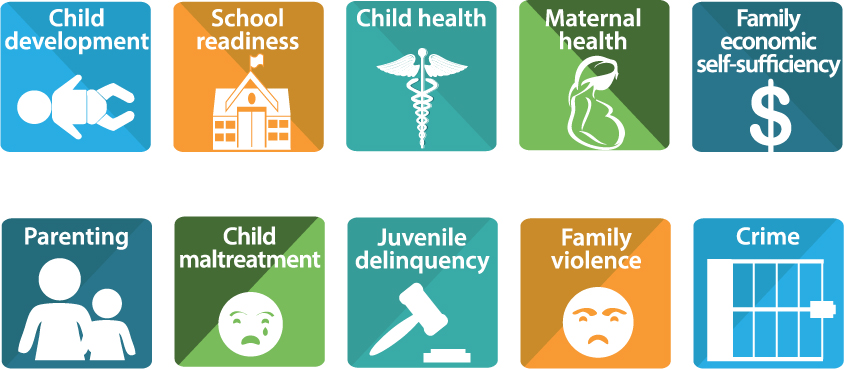|
March 2017
The original MIHOPE study is focused on learning how home visiting programs funded by the Maternal, Infant, and Early Childhood Home Visiting program (MIECHV) help families with babies and toddlers. However, a small body of prior research has found that home visiting can continue to benefit families through their children’s adolescence.
In light of that information, planning has begun for collecting and analyzing long-term follow-up data for families enrolled in MIHOPE.
Specifically, the Office of Planning, Research & Evaluation (OPRE), in collaboration with the Health Resources & Services Administration (HRSA), recently awarded a contract to MDRC, along with Mathematica and the University of Georgia, to design a long-term follow-up study of MIHOPE participants.
- Through this long-term follow-up, the research team can provide information about the impacts of MIECHV-funded programs over an extended time period. Information could be collected directly from families at multiple points in time, either through surveys of parents or direct assessments of children. The study could also collect important information on outcomes from state and federal administrative data systems.
- Work on study design will proceed throughout 2017, culminating with a report in 2018 that describes the plans for longer-term data collection. In the meantime, the research team will contact stakeholders, including model developers, over the course of this year to solicit their input on the study design.
- The team will also weigh prior evidence from home visiting studies as well as the broader literature in the domains of:

|
 In designing the study, the team will consider the following questions: In designing the study, the team will consider the following questions:
At what points in the child’s development should outcomes be measured?
Should follow-up be done with all families at each follow-up point, or will a subset of families be enough?
What data sources should be used? Should they include surveys of parents or teachers, in-person assessments of children’s development, and state and federal administrative data (for example, from Medicaid, child welfare systems, and schools)?
What outcomes will put the study in the best position to conduct a thorough cost-benefit analysis?
|
|
MIHOPE and MIHOPE-Strong Start News
|
Association for Public Policy and Management (APPAM) presentation. At the 2016 annual APPAM conference in Washington, D.C., in November, Sarah Crowne, a member of the MIHOPE-Strong Start research team from Johns Hopkins University, presented an early look at families and home visiting programs from the MIHOPE-Strong Start study. The presentation described some of the challenges faced by families who enroll in home visiting as well as the ways that home visiting programs are set up to address those challenges.
Home Visiting Summit presentation. Jill Filene, a member of the MIHOPE research team from James Bell Associates, participated in “The Ripple Effect of Research” workshop at the Sixth National Summit on Quality in Home Visiting Programs. The workshop provided an overview of MIHOPE research activities, and representatives from Early Head Start – Home-Based Option (EHS), Healthy Families America (HFA), Nurse-Family Partnership (NFP), and Parents as Teachers (PAT) shared insights into the experiences of home visiting program staff participating in research.
Follow-up data collection continues. The research team is close to completing the first wave of MIHOPE follow-up data collection. Specifically, in June 2017, all surveys and in-home assessments with families who have a child who is 15 months old will be completed. Analysis of these data will begin in the second half of 2017, and findings will be included in reports that are scheduled to be available in 2018. The second wave of follow-up data collection is also ongoing, with families completing brief surveys when their child is approximately 2½ years old.
Implementation research data are being analyzed. Thanks to the hard work of the home visitors and other staff at the programs participating in MIHOPE and MIHOPE-Strong Start, the research team has a wealth of information about program implementation and home visits to analyze. The research team is currently examining these data, which will provide important information about how home visits work. Findings will be reported in the final implementation report, planned for release in 2018. |
|


